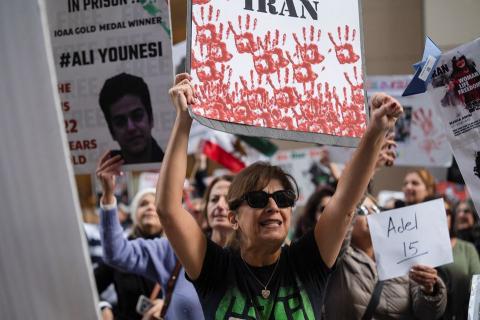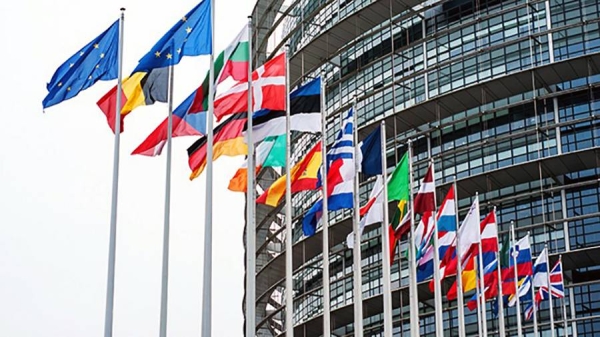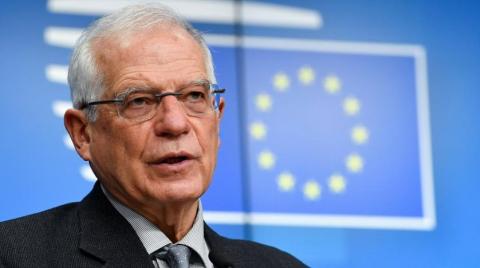
The European Union is considering imposing new sanctions on nearly 40 Iranian individuals and entities, according to draft documents seen by the American Politico website.
Additional sanctions are being studied as part of the EU’s response to the Iranian authorities’ deadly crackdown on protesters following the passing away last September of 22-year-old Mahsa Amini, who died in custody after being held by the morality police.
Politico reviewed 27 of the EU documents, which are called the “evidence pack” because they include information - mostly press reports - that support the proposed sanctions.
According to the documents, the European Union is considering imposing sanctions on 17 people, including regional governors, a lawmaker, a minister and a senior official of the Iran Broadcasting Service (IRIB).
The sanctions will also target current and former officials of the IRGC, which has played a major role in suppressing the demonstrators.
Included on the list is the Iranian sports minister, Seyed Hamid Sajjadi Hazaveh, who the document says is “responsible for pressurizing Iran’s athletes into silence, to prevent them from speaking out internationally against repression in Iran.”
The list also included 12 regional corps from the Revolutionary Guard, as well as Iran’s Communication Regulation Authority (CRA), which “enforces the Iranian government’s requirements to filter Internet content through a spyware called SIAM” and the Ravin Academy, a body that has trained hackers “involved in directly disrupting the communication of those protesting against the Iranian regime.”
According to the Oslo-based NGO Iran Human Rights, Iran government forces have killed at least 481 people, including 64 children and 35 women, in recent months.
European Union countries, led by Germany, France and the Netherlands, are separately debating whether to take further steps against the IRGC and designate it as a terrorist organization.
Last Monday, German Foreign Minister Analina Baerbock tweeted support for the proposal, saying: “This step is politically important and meaningful.”












